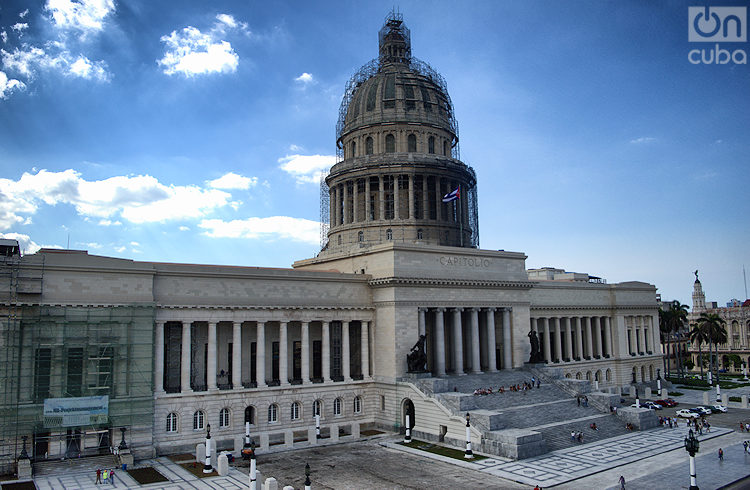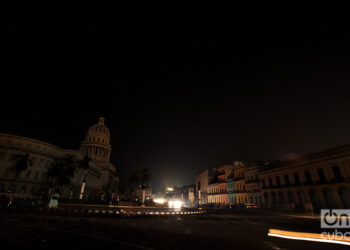For a Cuban citizen, in theory and according to the laws in force, to become the country’s president – or of the Council of State, the official post according to the Constitution of the Republic – call it as you may and having the formation he may have, he/she must meet four necessary stages. Just four stages. Without them they will not be able to aspire to the presidency.
OnCuba proposes a look at these stages, their requirements and forms of election. It is the climax of the elections on the island.
1- To be nominated as a candidate to deputy to the National Assembly
It is a basic step but indispensable. In Cuba there are no direct presidential elections but rather second degree, in which the deputies to the National Assembly elect one of its members as president of the Council of State. Therefore, to hold that presidential post it is necessary to first be elected as a deputy.
Since the Communist Party – the only legal one on the island – doesn’t officially nominate the National Assembly and neither does this decision fall on the voters – as it does occur on a local level -, the preselection of the candidates to deputies by each municipality is in the hands of the candidacy commissions, according to what is established in Law No.72 (Electoral) of October 29, 1992.
These commissions are made up by representatives of social, union and student organizations, and they select the nominees based on proposals made in the organizations’ plenums.
Afterwards the Municipal Assemblies, previously elected, confirm or don’t confirm what was proposed by the commissions and elect with their vote the definitive candidates. The future Head of State must be one of them.
- To be elected deputy to the National Assembly
On the date previously pointed out by the Council of State, the candidates to deputies must be approved or not in the ballot boxes. They will only be voted, directly and secretly, by the voters from the municipality or electoral district for which they were nominated and not the entire country, and to be elected they must obtain more than half of the valid votes.
In the elections of last March 11, in which the 9th Legislature was elected of the Cuban National Assembly which starts this April 18, all the candidates to deputies met this requirement and, therefore, were finally elected, among them the future president of the Council of State.
- To be nominated as president of the Council of State by the National Candidacy Commission
Technically, any of the deputies elected to make up the National Assembly – 605 in the case of the 9th Legislature – can be later elected as president of the Council of State, which, according to the Constitution, also turns him/her into the president of the Council of Ministers. For this he/she must be nominated for the post by the National Candidacy Commission.
This commission consults each one of the deputies, who separately propose those who in their opinion should form part of the Council of State, and among them its president. Afterwards the commission draws up a candidacy list based on the proposals made by the deputies and places it at the consideration of the National Assembly when it meets for the first time. The Assembly can confirm the candidacy or totally or partially modify it, as long as it has the backing of more than half of its deputies. The future Head of State should form part of the finally approved candidacy.
- To be elected president of the Council of State by the National Assembly
It is the last and definitive step. Once the candidacy is approved, it is submitted to the free, direct and secret vote of the deputies. The count of the ballots is carried out by the National Electoral Commission and its president – a post that is currently held by Alina Balseiro – is in charge of announcing the result of the votes.
To be elected president of the Council of State, the candidate must obtain more than 50 percent of the valid votes, as well as the candidates to the posts of first vice president, vice presidents, secretary and other members. In the case that the candidate does not get the necessary number of votes, the law establishes that the National Candidacy Commission must present another proposal and a new election be held.
Whoever is elected as the new Head of State must have overcome these four stages and have the backing of at least the majority of the National Assembly that begins its functions.
CUBAN PRESIDENTS
(1959-2018)
- Manuel Urrutia Lleó
(1901-1981)
Lawyer. Proposed by the leadership of the 26th of July Revolutionary Movement for the presidency of the Republic once the Revolution triumphed. He assumed the post provisionally on January 2, 1959 and resigned on July 17 because of differences with Fidel Castro, Prime Minister at the time.
- Osvaldo Dorticós Torrado
(1919-1983)
Lawyer. Member of the 26th of July Revolutionary Movement. Minister in Charge of the Presentation and Study of the Revolutionary Laws during the presidency of Manuel Urrutia and named president by the Council of Ministers after Urrutia resigned on July 17, 1959. He remained in the post until December 1976.
- Fidel Castro Ruz
(1926-2016)
Lawyer. Principal leader of the Cuban Revolution. Prime Minister during the mandates of Manuel Urrutia and Osvaldo Dorticós. Elected president of the Council of State and of Ministers by the National Assembly in December 1976. Due to his sickness, in 2006 he transferred temporarily the presidency to his brother Raúl, until the latter’s official election in 2008.
- Raúl Castro Ruz
(1931-)
Military. One of the leaders of the Cuban Revolution. Minister of the Revolutionary Armed Forces since 1959 until 2008. In 2006 he assumed temporarily the presidency of the Council of State and of Ministers substituting his brother Fidel. On February 24, 2008 he was elected president of the Council of State and of Ministers by the National Assembly. He will leave his post this April 18.
See all of OnCuba’s coverage on the subject:











